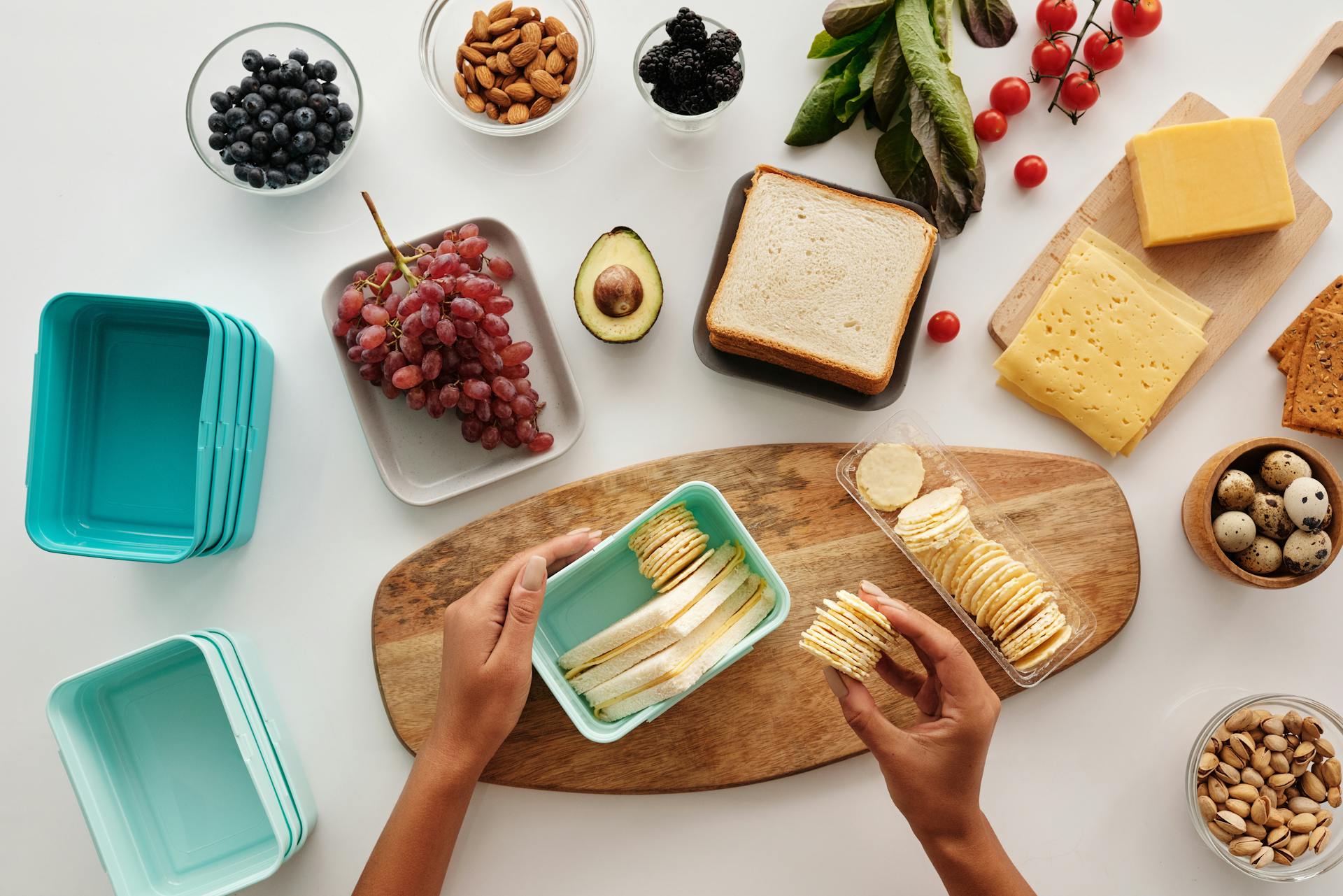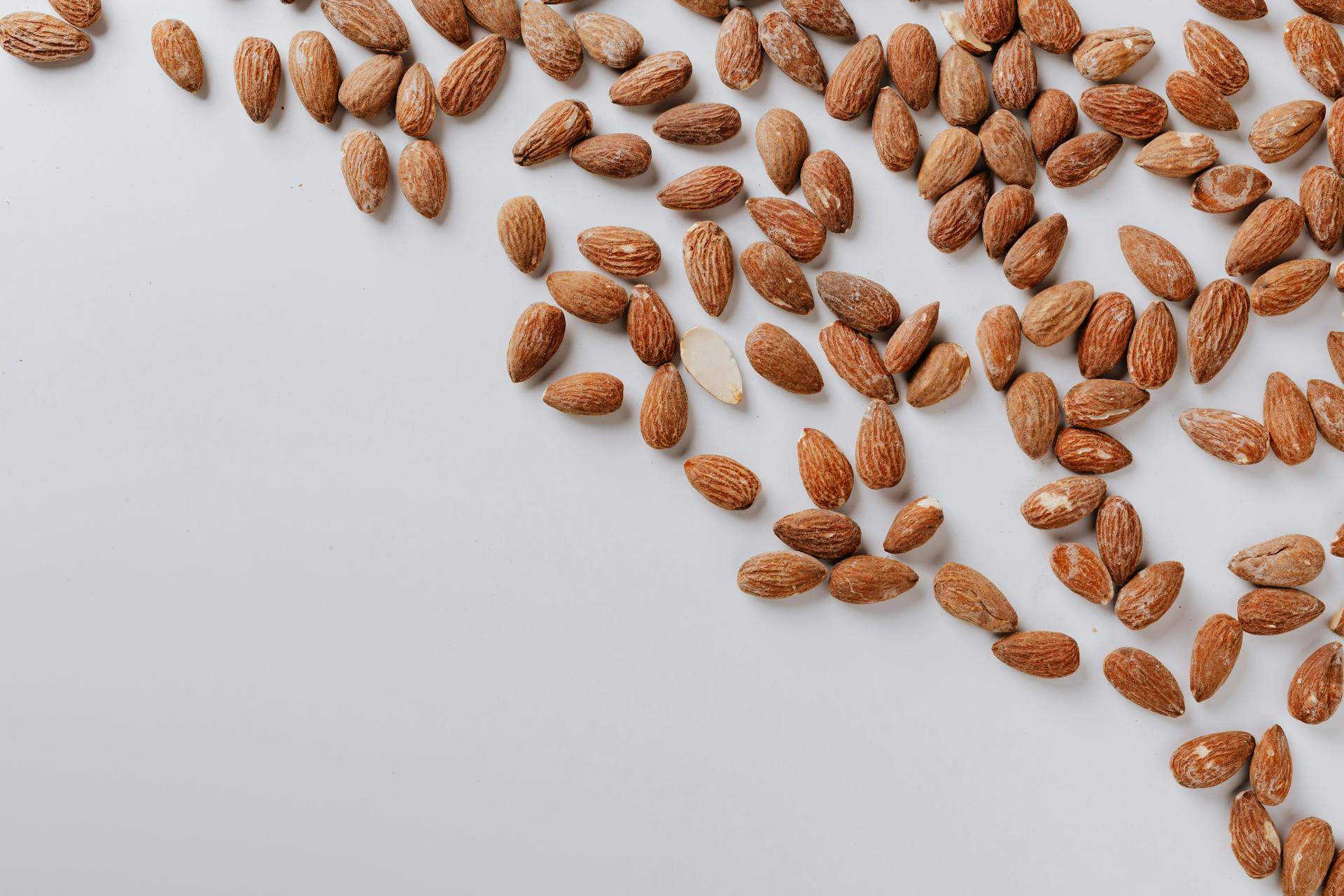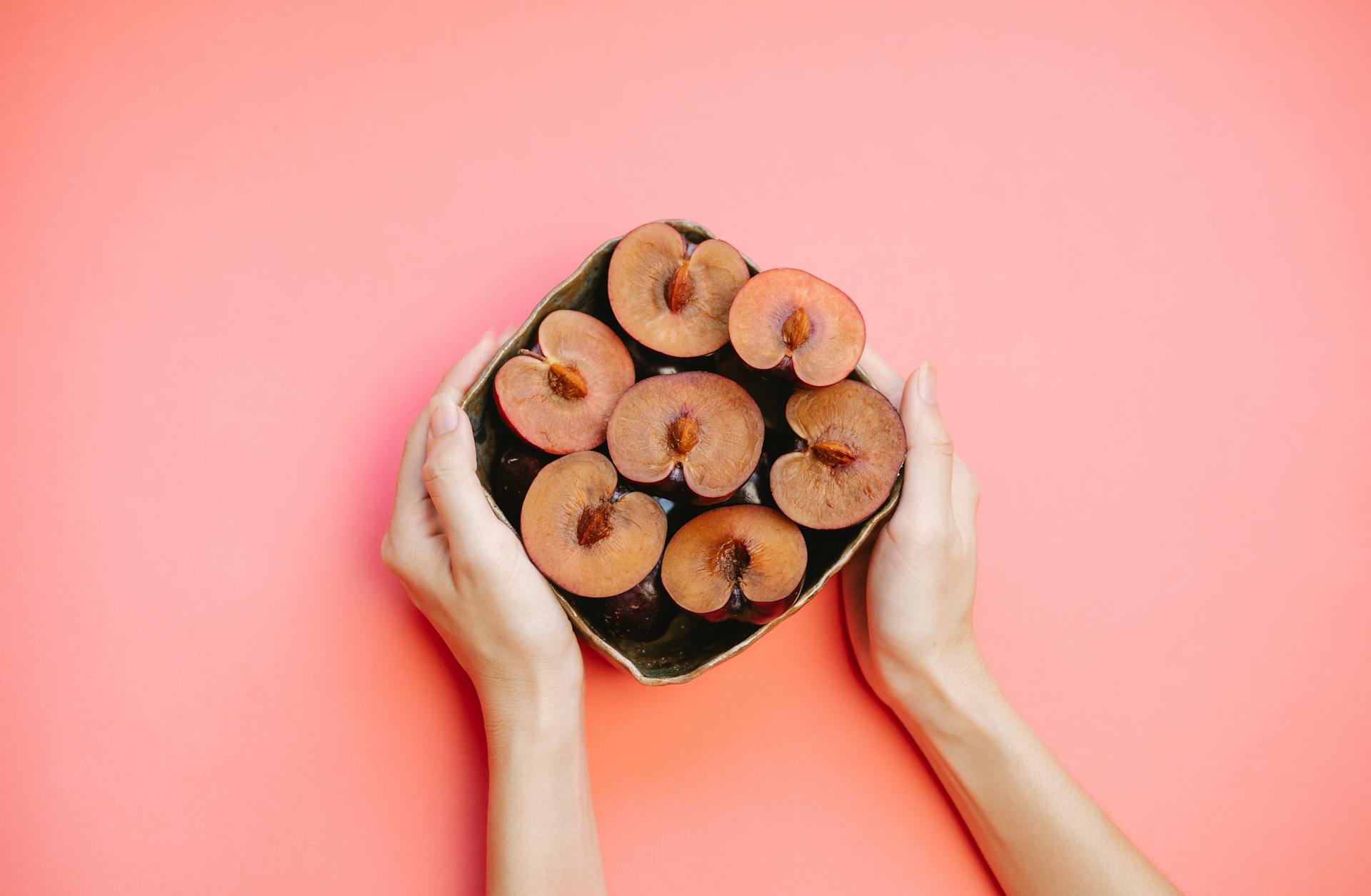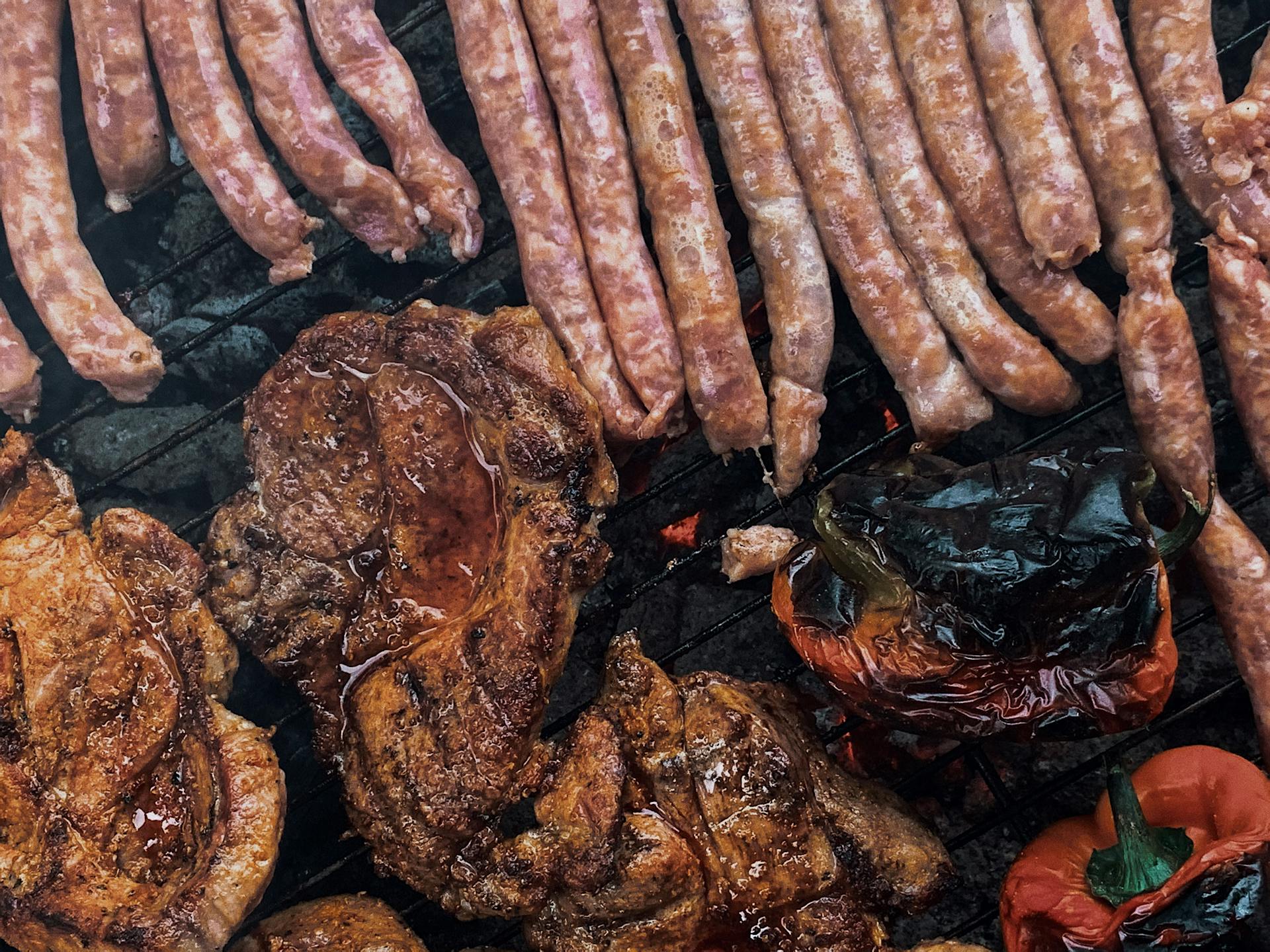
Are you looking for an effective diet that helps you lose weight and improve your overall health? Look no further than the ketogenic diet! By eating keto-friendly foods, you can achieve a healthy weight without counting a single calorie.
Meat, fish, seafood, cheese, and real butter are just some of the delicious ketogenic diet foods that can help you achieve your goals. To get started on this amazing journey to better health, simply choose keto-friendly foods and avoid breads, potatoes, rice, sweets and other high-carb items.
This article will provide you with key takeaways about eating keto foods to help you discover their ultimate impact on your body. You'll also receive a printable leaflet to make it easy for you to choose healthy options when grocery shopping. So let's dive into the bottom line of what makes the ketogenic diet so successful!
Additional reading: High Protein Foods
What Is the Ultimate Impact? Discover the Bottom Line!
The keto diet has gained popularity as a weight loss and blood sugar control approach. However, its ultimate impact extends beyond these benefits. The high fat approach offers a versatile eating pattern that accommodates a wide variety of nutritious and tasty foods.
Unlike other overly restrictive diets, the keto diet allows for daily carb ranges that provide health benefits while still allowing for enjoyable meals. By embracing low carb and high-fat foods, you can reap the health goals you set out to achieve while also indulging in deliciously versatile foods.
In summary, the ultimate impact of the keto diet is about more than just weight loss and blood sugar control. This way of eating offers an enjoyable and sustainable lifestyle that accommodates a wide variety of nutrient-dense options within your daily carb range. Take advantage of this tasty and versatile eating pattern to reach your health goals today!
A different take: Edamame Benefits
1. Just one thing
Just one thing to keep in mind when following a ketogenic diet is carb count. It's important to be aware of the carb content in your food choices, and there are many keto apps available to help you track it. Remember, always consult with a healthcare professional before starting any diet plan, and make sure to choose foods that are medically reviewed for safety. Keep these tips in mind and stay on track with your ketogenic journey! (Keywords: carb count, keto apps, carb content, medically reviewed)
2. How we reviewed this article:
Here at (publication name), we take our health and wellness content seriously. That's why our team of experts continually monitor the latest trends in the wellness space to bring you up-to-date information on topics like the ketogenic diet. Our current version of the article on ketogenic diet foods was medically reviewed by Marie Lorraine Johnson MS, copy edited by Chris Doka, and originally written by Savanna Shoemaker, Franziska Spritzler, and Heather Hobbs on Apr 5 2022. So you can trust that you're getting reliable information to help you make informed decisions about your health.
Consider reading: Watermelon Health Benefits
3. Read this next
Read this next: "Ketogenic Diet Foods" by Jillian Kubala MS, RD. This article discusses the healthiest types of foods to eat on a high-fat very-low-carb ketogenic diet, designed specifically for brain health and slow brain aging. It also reviews other trendy diets touted to restore gut health and aid weight loss, such as the microbiome diet and bone broth diet, as well as sharing 11 simple ways to clean up your eating habits with fresh natural foods. Plus, don't miss out on trying the 10 healthy herbal teas with a wide variety of tastes and flavors and great health benefits!
A fresh viewpoint: 10 Foods High in Magnesium
A Detailed Ketogenic Diet Food List to Follow

A ketogenic diet, or simply a keto diet, is an eating approach that focuses on high-fat and low-carb foods. To follow this type of diet, it's essential to have a detailed food list to ensure that you're consuming the right types and amounts of nutrients. Some of the best keto diet foods include avocado, eggs, nuts and seeds, leafy greens, and fatty fish like salmon. However, keep in mind the serving sizes for each food item since some keto-friendly foods can still be high in calories. With this list in hand, you'll never run out of ideas for delicious meals that not only fit your dietary requirements but also taste amazing!
1. Avocado Oil
Avocado oil is a great addition to any ketogenic diet food list. With only 124 calories per 1 tablespoon (tbsp) serving and net carbs equal to 0, it's a low-carb option that won't throw you off track. Plus, it's a good source of protein (14g) and healthy unsaturated fatty acids that can help keep you feeling full and satisfied throughout the day.
2. Coconut Oil (in Moderation)
Coconut oil is a popular ingredient in keto diets due to its benefits high in saturated fats. However, it's essential to consume coconut oil in moderation since one tbsp serving contains 121 calories, 0 net carbs, and only 14g of protein. Research suggests that coconut oil may improve heart health, but data isn't conclusive. To ensure optimal health benefits, it's best to choose unsaturated sources of fat like olive or avocado oil as recommended by Harvard Health Publishing.
Related reading: Magnesium Benefits
3. MCT Oil
MCT oil, or medium chain triglycerides, is a popular supplement for those following a ketogenic diet. Carrington Farms offers a 1 tbsp serving of their MCT oil with 130 calories, 0 net carbs, and 0 protein. While limited research suggests that small doses of MCT oil may promote weight loss and help promote ketosis, note that the Cleveland Clinic warns those with liver conditions to avoid using MCT oil as it is high in saturated fats. As an alternative, try using olive oil instead.
4. Cheddar Cheese
Cheddar cheese is a great addition to any ketogenic diet. With only 115 calories per 1-ounce slice and 0 net carbs, it's a filling and satisfying snack with protein benefits. Studies have found potential links between eating cheese and lower risks of type 2 diabetes, making it a smart choice for both its nutrition benefits and flavor. Plus, the needed saturated fats in cheese make it a perfect addition to your keto meal plan.
5. Heavy Cream (in Moderation)
Heavy cream can be a delicious addition to your ketogenic diet, but it should be used in moderation. A 1 tbsp serving contains 51 calories, 0 net carbs, and 5 grams of protein. However, it is important to note that heavy cream is high in saturated fat and can add calories quickly if overused. Keep this in mind when incorporating heavy cream into your ketogenic meal plan.
Intriguing read: Bananas Calories Carbs
6. Bacon
Bacon is a green light food on the keto diet. One slice serving has 37 calories, 0 net carbs, and 3 grams of protein. Contrary to popular belief, saturated fat is not the reason you're unhealthy - so add bacon to your list! Just be mindful of the sodium content and make eating occasions a treat rather than an everyday occurrence. Plus, research shows that a keto diet can help with lowering blood pressure.
7. Chicken Thighs
Chicken thighs are a great addition to any ketogenic diet plan. With only 1 thigh serving containing 181 calories, 18 net carbs, 12 grams of protein and fat notes, they are the perfect way to satisfy your hunger without consuming too many carbs. Plus, leaving the extra fat and skin-on dark-meat poultry will provide a good source of saturated fat - something that is essential for the success of the keto diet. Unlike white meat, chicken thighs are also a good source of riboflavin, niacin, and B6 which are important for maintaining healthy energy levels throughout the day.
8. Eggs
Eggs are the perfect combo of satiating protein and low net carbs, making them a great choice for those on a ketogenic diet. With 1 large egg serving up only 72 calories, 0 net carbs, and 5 grams of protein, it's no wonder why they're a staple in many keto kitchens. Additionally, eggs are rich in the antioxidant mineral selenium and unsaturated fats, adding to the benefits eggs offer beyond their macronutrient profile.
Recommended read: Protein in Egg
9. Ground Beef
Ground beef is an excellent source of protein and vitamin B12. A 4-ounce serving measured raw contains 375 calories, 34 grams of protein, and 0 net carbs. The fat notes make it a great option for those on the ketogenic diet, with 70 percent lean meat and 30 percent fat, including saturated fat. Research also notes the benefits ground beef made from 90 percent lean beef can have on energy levels.
10. New York Strip Steak
If you're looking for a delicious and satisfying keto-friendly meal, look no further than the New York Strip Steak. A 4-ounce serving of prime meat trimmed to an eighth-inch fat contains an impressive amount of muscle-building protein (25g) and satiating fat (0 net carbs, 22g saturated fat). Not only will it keep you full and satisfied, but the benefits you'll see from promoting proper thyroid function are undeniable.
11. Asparagus
Asparagus is a great vegetable to include in your ketogenic diet as it only contains 2 net carbs per 1 cup raw serving, with no protein and just 27 calories. But the benefits of asparagus go beyond its macronutrient profile; it's also packed with bone-building calcium and can aid in blood sugar regulation. According to the National Institutes of Health Office of Dietary Supplements, asparagus may even have potential health benefits beyond its nutritional value. Keep reading to learn more about this delicious and nutritious vegetable.
12. Avocado
Avocado is a creamy fruit that's a staple in the keto diet due to its low net carbs and high fat notes. A half avocado serving contains 160 calories, 2 net carbs, and 15 protein, making it a good source of nutrition for those following a keto diet. It also contains monounsaturated fatty acids, which are important for maintaining heart health, and an immune-revving vitamin according to the National Institutes of Health Office of Dietary Supplements.
13. Bok Choy
Bok choy, also known as Chinese cabbage, is a popular vegetable in the ketogenic diet. With just 1 net carb and 0 grams of protein per 1 cup shredded serving (only 9 calories!), it's an excellent choice for those following a low-carb lifestyle. But that's not all - bok choy is also a rich source of energy-boosting iron, notes StatPearls. Keep reading to learn more about the benefits of incorporating this delicious veggie into your keto meals.
14. Cauliflower
Cauliflower is a versatile and nutritious vegetable that's perfect for anyone following a ketogenic diet. With only 27 calories in a 1 cup raw serving, net carbs of 2 and protein of 0, cauliflower is an excellent source of heart-healthy nutrients. Incorporating cauliflower into your daily goal makes it easy to stay on track with your keto lifestyle while reaping the health benefits.
15. Celery
Celery is a great addition to any ketogenic diet plan. With only 1 net carb per 1 cup raw serving and 0 protein, celery is one of the most hydrating veggies out there. The crunchy spears not only add texture to dishes but also provide numerous benefits. Keep reading to find out more about the benefits of celery and other ketogenic foods.
16. Cucumber
Cucumber is a perfect ketogenic diet food choice. With only half cup sliced serving at 8 calories and net carbs of 0, it's a hydrating choice. They contain no protein but the benefits of cukes are plenty. Cucumbers have important vitamins for proper blood clotting and bone formation, making them an excellent addition to any keto meal plan.
17. Green Peppers
Green peppers are an excellent choice when following a ketogenic diet. One cup of sliced green peppers only contains 18 calories, 3 net carbs and no protein. They are also a good source of vitamin B6, which is important for over 100 enzyme reactions in the body according to the National Institutes of Health. Adding green peppers to your meals can help you reach your daily intake of vitamins while staying within your daily net carbs limit.
18. Lettuce
Lettuce is a great addition to any ketogenic diet. With only 5 calories per 1 cup shredded serving, net carbs of 0, and protein of 0, it is the perfect low-carb vegetable. Not only does lettuce add bulk to meals, but it also provides skin-strengthening vitamins and benefits of leafy greens. Don't forget to take note of the fat notes when pairing your salad with dressings or toppings!
19. White Mushrooms
White mushrooms are an excellent addition to a ketogenic diet. With only 15 calories per 1 cup raw serving, they have net carbs of 2 and zero protein. In addition to being low in carbs and calories, mushrooms also have potential immune-boosting properties, making shiitake mushrooms a suggested excellent source for their benefits.
20. Zucchini
Zucchini is a great vegetable to add to your ketogenic diet. A one cup sliced raw serving of zucchini contains only 19 calories and 2 net carbs, with no protein but additional fiber. It also helps form bone and contributes to blood glucose control. Keep reading to learn more about other keto-friendly foods!
21. Day 1
Day 1 of the ketogenic diet can be challenging, but with the right foods, it's manageable. Start your day off with breakfast scrambled eggs and a side of lettuce topped with avocado for added fat. For a mid-day snack, try sunflower seeds or celery paired with pepper strips dipped in guacamole. Lunch can consist of a spinach salad topped with grilled salmon, while dinner can feature a pork chop served with cauliflower mash and red cabbage slaw. Stay focused and motivated by incorporating these delicious and satisfying keto-friendly foods into your daily routine.
22. Day 2
On day 2 of the ketogenic diet, you can start your morning with a tasty breakfast bulletproof coffee made with coconut oil and hard-boiled eggs. For snacks, macadamia nuts or roast beef sliced cheese roll-ups are perfect options. For lunch, try a tuna salad stuffed in avocado halves, and for dinner, enjoy meatballs and zucchini noodles topped with cream sauce. These delicious foods will keep you satiated and on track with your keto diet goals.
23. Day 3
On day 3 of the ketogenic diet, you can start your day with a breakfast cheese and veggie omelet topped with crushed pecans for added texture. For a mid-morning snack, try plain full-fat Greek yogurt topped with more crushed pecans. For lunch, opt for sashimi takeout and a side of miso soup. For an afternoon snack, make a smoothie using almond milk, greens, almond butter, and protein powder. Finally, end your day with roasted chicken for dinner.
24. Day 4
On day 4 of the ketogenic diet, start your day with a delicious breakfast smoothie made with almond milk, greens, almond butter, and protein powder. For lunch, try some chicken tenders made with almond flour and goat cheese. Snack on sliced cheese and bell pepper slices. Finish off the day with a satisfying dinner of grilled shrimp topped with lemon butter sauce.
25. Day 5
On Day 5 of the ketogenic diet, start your day with breakfast fried eggs cooked in coconut oil and a quarter cup of sliced avocado. For lunch, enjoy a grass-fed burger on a lettuce bun topped with your favorite low-carb toppings and a side salad. For a snack, try celery sticks dipped in almond butter. Dinner can be baked tofu served with cauliflower rice broccoli and peppers, topped with homemade peanut sauce for an extra kick of flavor. Keep going strong on your keto journey with these delicious food options!
26. Day 6
On day 6 of the ketogenic diet, it's time to mix things up with some new recipes. Start your day off right with breakfast baked eggs or avocado cups. For a midday snack, try some kale chips or a meat-based bar like turkey. Lunch can be poached salmon avocado rolls wrapped in seaweed rice-free, while dinner can consist of grilled beef kebabs. Keep exploring new keto-friendly meals to keep your diet exciting and delicious!
27. Day 7
"Day 7 of our ketogenic diet challenge included a delicious breakfast of scrambled eggs and veggies topped with cheese. For lunch, we enjoyed a sardine salad made with fresh greens and avocado. Our snack was dried seaweed strips, a great alternative to chips with no added sugars. Later in the day, we munched on some tasty turkey jerky before enjoying a satisfying dinner of broiled trout."
Affordably Achieving the Keto Diet: Practical Tips

If you're looking to achieve a ketogenic diet on a budget, fortunately, it's entirely possible. Firstly, focus on buying unprocessed foods that are low in carbs and high in healthy fats. Secondly, mention nuts as they’re an excellent source of nutrients and healthy fats. Finally, keto diet buying frozen veggies is a smart option as they’re often more affordable than fresh produce. Additionally, don’t forget to add some low-carb berries to your diet for a sweet and nutritious treat.
Discover more: 50 Super Healthy Foods
Crafting a Delicious and Effective Ketogenic Meal Plan

If you've decided to embark on a ketogenic diet, the first step is to create an eating plan that fits your lifestyle. A high-fat diet, roughly 70-80 percent of your calorie intake, will be the foundation of your meal plan. Fats should make up 10-20 percent of your calorie intake, with protein comprising the remaining 10 percent.
According to the Chan School of Public Health, you'll eat meats, fats such as olive oil, low-carb veggies, and other foods rich in healthy fats. This is different from a traditional low-carb diet which focuses on fewer carbs and higher protein intake. To maintain ketosis, you'll need to limit your total carb intake to 50 grams or less per day. For example, a 140-pound woman would aim for approximately 25 grams of net carbs daily (total carbohydrates minus fiber equals net carbs), meaning she would consume no more than 50 grams of total carbs per day.
To maintain this metabolic state where your body stops producing ketone bodies and starts burning carbohydrates instead, it's important to keep track of your macros carefully. This means monitoring not only your carb intake but also ensuring that you're eating enough fat and protein. With a little bit of planning and preparation, crafting an effective ketogenic meal plan can be easy and delicious.
Frequently Asked Questions
Should you take keto supplements?
It's not necessary to take keto supplements if you're following a balanced ketogenic diet with enough nutrients. However, some people may find them helpful in achieving their health goals, but be sure to consult with your healthcare provider first.
Are nuts keto friendly?
Yes, most nuts are keto friendly as they are low in carbs and high in healthy fats. However, it's important to watch portion sizes as some nuts can still be high in calories.
What are the healthy fats and oils on the keto diet?
Healthy fats and oils on the keto diet include avocado oil, coconut oil, olive oil, macadamia nut oil, ghee, and grass-fed butter. These fats provide essential nutrients and help maintain ketosis for optimal health and weight loss on the keto diet.
What should I avoid when trying keto?
Avoid high-carb foods such as bread, pasta, and sugary snacks. It's also important to limit your intake of processed foods and alcohol while on the keto diet.
Featured Images: pexels.com


